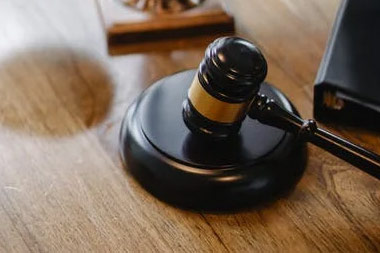 Legal Business - POSTED: 2025/05/03 18:45
Legal Business - POSTED: 2025/05/03 18:45
Wisconsin Gov. Tony Evers said Friday that every American should be concerned about “chilling” suggestions from President Donald Trump’s top border adviser that he could be arrested over guidance the Democrat issued to state employees about what to do if confronted by federal immigration agents.
“I’m not afraid,” Evers said in the extraordinary video posted on YouTube. “I’ve never once been discouraged from doing the right thing and I will not start today.”
At issue is guidance Evers’ administration issued last month in response to state workers who asked what they should do if agents with U.S. Immigration and Customs Enforcement show up at their offices.
Evers’ guidance advised them to contact an attorney immediately and ask the officers to return if an attorney is unavailable. The memo also advises state workers not to turn over paper files or give ICE officers access to computers without first consulting the state agency’s attorney and not to answer questions from the agents.
The recommendations are similar to guidance that Connecticut’s Democratic governor issued in January. The guidelines also mirror what the National Immigration Law Center and other advocacy groups have said should be done when immigration officials show up at a workplace.
Republican critics argued that the guidance was an order from Evers not to cooperate with ICE agents, an accusation the governor vehemently denied in Friday’s video. The goal of the guidance was to give state employees “clear, consistent instructions” to ensure they have a lawyer present to help them comply with all applicable laws, Evers said.
He accused Republicans of lying about the guidance and spreading misinformation to fuel a “fake controversy of their own creation.”
“I haven’t broken the law,” Evers said. “I haven’t committed a crime and I’ve never encouraged or directed anyone to break any laws or commit any crimes.”
Tom Homan, Trump’s top border adviser, was asked about the Evers memo by reporters outside the White House on Thursday. Homan said, “Wait to see what’s coming,” when asked about the memo.
“You cannot support what we’re doing, and you can support sanctuary cities if that’s what you want to do, but if you cross that line to impediment or knowingly harboring and concealing an illegal alien, that’s a felony and we’re treating it as such,” Homan said.
Some Republicans embraced the possibility of Evers being arrested. Republican Wisconsin state Rep. Calvin Callahan posted a fake image on social media showing Trump in a police uniform behind a grim-faced Evers in handcuffs outside of the state Capitol.
The comments from Homan and Evers’ response come a week after Milwaukee County Circuit Judge Hannah Dugan was arrested at the courthouse on two felony charges. She is accused of helping a man evade immigration authorities by escorting him and his attorney out of her courtroom through the jury door last week after learning that federal officers were seeking his arrest.









